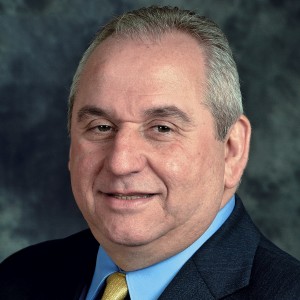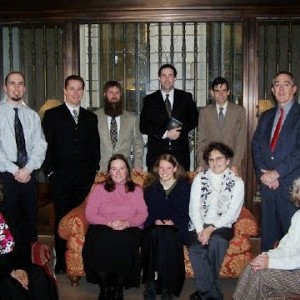 HARRISBURG — A Pennsylvania senator that is pushing for the passage of a controversial homosexual hate crimes bill of concern to Christians came out of the closet this week in announcing himself as being “gay” and “lov[ing] it.”
HARRISBURG — A Pennsylvania senator that is pushing for the passage of a controversial homosexual hate crimes bill of concern to Christians came out of the closet this week in announcing himself as being “gay” and “lov[ing] it.”
“Hundreds of people know I’m gay. I just never made an official declaration,” declared Sen. Jim Ferlo (D-Pittsburgh) on Tuesday. “I never felt I had to wear a billboard on my forehead. But I’m gay. Get over it. I love it. It’s a great life.”
Ferlo was speaking at a press conference organized to announce his proposal to reinstate hate crimes legislation in Pennsylvania, which would mandate additional and severe criminal penalties against those who harm homosexuals. The previous state law had been struck down following a challenge from Christians who were charged under the statute for sharing the gospel of Jesus Christ at a “gay pride” event and faced nearly half a century behind bars.
The reintroduction of the bill follows a recent incident in Philadelphia, where two men and a woman are facing charges of aggravated assault, simple assault, recklessly endangering another person and criminal conspiracy for allegedly beating two homosexual men in the city. Ferlo, a Roman Catholic, believes that additional penalties should be imposed because of the men’s “sexual orientation” as reports claim that slurs were used in the attack.
But Fortunato Perri Jr., one of the attorneys in the case, said that the incident had nothing to do with homosexuality.
“In no way, shape or form was this incident related to anyone’s sexual orientation,” he stated on Wednesday. “This was a mutual confrontation that started because two individuals got into an argument out in the street.”
Attorney Louis Busico agreed.
“[My client] is absolutely not homophobic and she didn’t utter any slur to anyone whatsoever,” he said. “We don’t deny that there was a gentleman who was assaulted.”
In outlining his proposal in light of the incident, Ferlo explained that the matter was personal and that he wanted to introduce the bill since he would be leaving office in November.
“I apologize for saying this so late in life, but I am not any longer going to be in the state Senate, and I know that many people do not report hate crimes because of the fear of being out,” he said.
But some oppose hate crime legislation out of concern that the enactment of such laws will further create an environment for a police state, criminalizing any individual whose conduct is loosely interpreted by law enforcement as being “harmful” and posing a serious threat to free speech and biblical evangelism.

In 2004, a group of Christians known as the “Philadelphia 11” made national headlines after being charged with a “hate crime” for sharing the gospel of Jesus Christ on the public streets of Philadelphia during an annual taxpayer-funded celebration of homosexuality called “Outfest.”
Simply by preaching the word of God, singing songs of praise and carrying banners with Scripture verses, the Christians were viewed by local law enforcement as being a “threat” and were subsequently arrested. At the same time, police ignored homosexual attendees who were seeking to drown out the Christians by encircling them with large pink placards while blowing loud, screeching whistles.
After being jailed for 21 hours, each of the Philadelphia 11 was charged under Pennsylvania’s “hate crimes” law called “ethnic intimidation.” The then statute, 18 Pa. Cons. Stat. § 2710, prohibited offenses “with malicious intention toward the actual or perceived race, color, religion, national origin, ancestry, mental or physical disability, sexual orientation, gender or gender identity of another individual or group of individuals.”
The Philadelphia 11 were also charged with a host of other felony and misdemeanor charges, including “criminal conspiracy” and “possession of an instrument of crime” for holding signs and using amplification equipment to speak. Each faced a possible sentence of up to 47 years in prison along with a $90,000 fine.
After several months of looming criminal charges, the Philadelphia 11 were finally vindicated of all counts, but Christians nationwide became alarmed in observing the serious ramifications of the law and how it can be used against free speech and evangelism.
Following the incident, in 2006, the Philadelphia 11 challenged Pennsylvania’s “hate crimes” law as being unconstitutional, taking to task then-Gov. Ed Rendell in Marcavage, et al. v. Rendell, et al. Although not based on the merits of the law, both the Commonwealth Court of Pennsylvania and the Pennsylvania Supreme Court agreed that legislators violated the state constitution by altering an agricultural crop destruction bill into a bill protecting people based on “gender identity” and “sexual orientation,” which was used in charging the Christians.
“The original purpose of HB 1493, viewed in reasonably broad terms, was to criminalize crop destruction,” the court ruled. “As ultimately enacted, HB 1493 expanded the classification of persons protected under the offense of ethnic intimidation.”
Ferlo now seeks to reinstate the hate crimes law, which some believe is unnecessary as it is already a crime to physically injure a person for any reason.
Become a Christian News Network Supporter...


